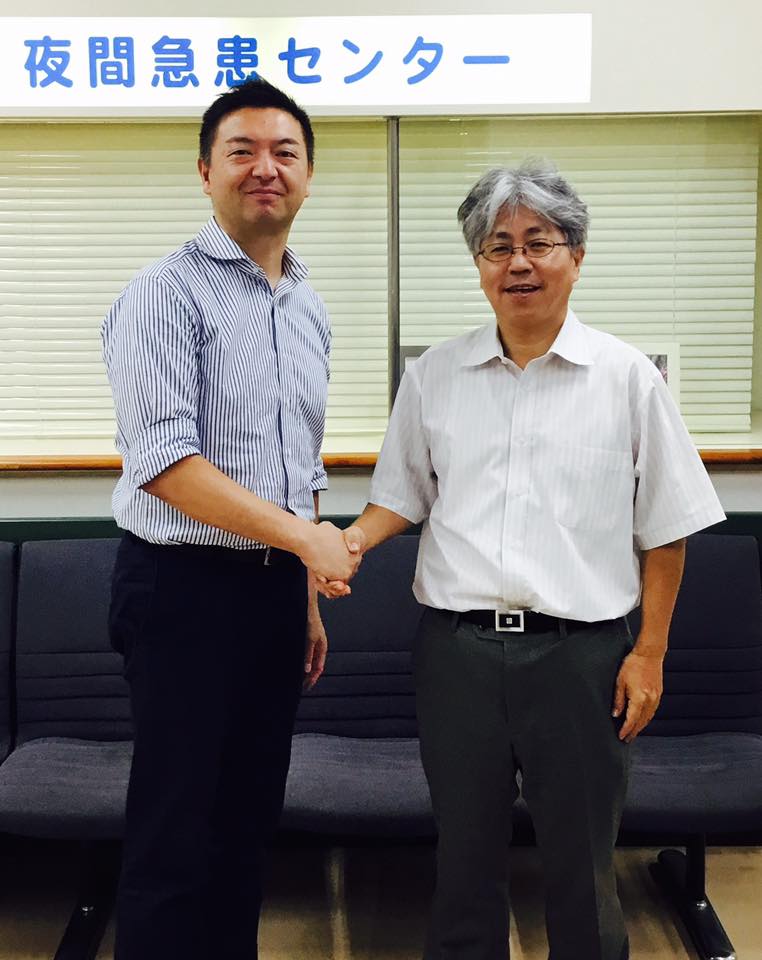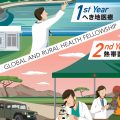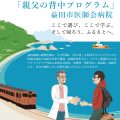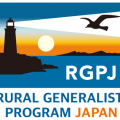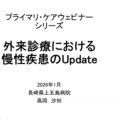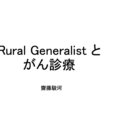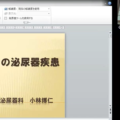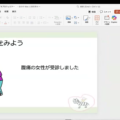『デリー宣言 ―15th WONCA World Rural Health Conference―』
先日、インドはニューデリーにて開催された学会「15th WONCA World Rural Health Conference」に参加してまいりました。

やはり世界中のへき地医療に携わる人々が一堂に会する場だけあり、“生きた” 最新の臨床情報や目から鱗の知見から、身の引き締まる失敗談に笑える苦労話まで、本当に様々な情報に触れることができました。
また、多くの方々と新たに親交を深めることができたことも、非常に嬉しく思っております。
さて今回、諸般の事情で全文訳を掲載することができなく心苦しいですが、同学会の中で新たに宣言された「デリー宣言」を共有させていただきたいと思います。
少々長くはありますが、お時間に余裕のある時にでも、ぜひ一度目を通してみてください。
We, the delegates at the 15th WONCA World Rural Health Conference call on the international community to reaffirm the principles of the Declaration of Alma-Ata. We call on the United Nations, its specialized agencies and national governments to continue to strive to achieve the goals set 40 years ago.
【私たち第15回世界へき地医療学会の参加者は、国際社会がアルマ・アタ宣言の原則を再確認し、国際連合とその各専門機関、各国政府が、40年前に掲げられた目標に向かって努力を続けるよう求めます。】
The Declaration of Alma-Ata defined health as “a state of complete physical, mental and social well-being, and not merely the absence of disease or infirmity.” As rural healthcare practitioners, we base our work on this understanding. We strive for the highest possible level of health for the communities we serve, with the goal of “Health For All Rural People”.
【アルマ・アタ宣言においては、健康を「身体的、先進的、社会的に完全に良好な状態のことであり、単に疾患を抱えていないことや衰弱していないことではない」と定義しています。へき地で働く臨床家として、私たちもこの考え方を基本としています。「すべての田舎で暮らす人々に健康を」を目標として、私たちが働く地域社会において、できるかぎり質の高い健康を支えられるよう努力します。】
We recognise that:
・ the realization of this goal requires the action of other social and economic sectors in addition to the health sector: health and wellbeing is driven as much by socio-economic development as by healthcare;
・ primary health care in rural and other areas must be delivered by teams of health workers with a broad range of skills and levels working together in partnership with communities;
・ teams of health workers must focus on delivering comprehensive care that responds to the needs of individuals, families and communities, moving away from a narrow medical model and siloed thinking.
・ family doctors, working to their maximum scope, have an important role in delivering patient and community centred care in rural areas
rural populations are becoming older, poorer and more vulnerable – in the era of the Sustainable Development Goals we must promote equitable access to health and ensure no-one is left behind.
WHO’s Global strategy on human resources for health: Workforce 2030 and the High-Level Commission on Health Employment and Economic Growth reinforce the need for an expanded and more socially accountable health workforce. Further, the Dublin Declaration on Human Resources for Health: Building the Health Workforce of the Future, emphasizes:
“the fundamental importance of a competent, enabled and optimally organized and distributed health and social workforce, especially in rural and under-served areas, for the strengthening of health system performance and resilience”
In this context, we believe that the needs of people living in rural and isolated parts of the world must be given special priority if nations are to achieve universal health coverage.
In the spirit of Alma Ata, the conference is committed to working with the international community and identifies the following six areas as priorities to achieve “Health For All Rural People”.
【アルマ・アタ宣言の精神に則り、私たちは国際社会と協力することを確約します。そして、「すべてのへき地の人に健康を」という目標を達成するため、次の6つの領域を優先的に達成すべきと考えます。】
Equity and access to care: True universal health coverage will be achieved only when people in the rural areas of the world have equitable access to healthcare which overcomes the current geographic, social, economic, political, ethnic and cultural barriers. Despite the fact that nearly 50% of the world’s population live in rural areas, only 38% of the world’s nurses and 24% of the world’s doctors provide care for them. This inequity must disappear. Rural people deserve the same quality of care that their urban counterparts receive – accessible, affordable, and effective care that meets the population’s health needs. According to the International Labour Organisation, the rural-urban divide is omnipresent from the richest countries down to the poorest countries. Worldwide (174 countries), 56% of those living in rural areas are not covered by basic health care against 22% in cities and towns. Gender, cultural, age and geographical issues are paramount in achieving equity for rural people.
【公平な医療アクセス:(後略)】
Rural proofing of policy: Policies that affect the health of and determine the healthcare provided to rural people are often developed in urban centres of power. These often do not take the needs of rural people or the implications of policies for these people into account. Comprehensive research data needs to be gathered and the voices of rural people need to be heard in developing policies that affect them. A process of rural health impact assessment or “Rural Proofing for Health” mitigates against the possible negative health effects of fragmented policy development.
【地方という視点からの政策の再評価:(後略)】
Health system development: A health system which features comprehensive primary health care is the most effective and efficient in terms of cost and health outcomes. In this context, governments must invest in expanding their health systems with the development of multidisciplinary teams of health workers that have the skills to address the specific needs of rural and isolated communities. New and emerging technologies will play an increasingly important role in sustaining the health workforce and the health of rural and isolated communities. We call on the international community to invest in digital health and digital health education technologies in support of an appropriately trained rural health workforce.
【医療保健システムの改善:(後略)】
Developing and educating a workforce fit for purpose: Evidence is clear that recruiting students from rural backgrounds, giving students substantial rural experience during training and implementing specific rural training programmes after qualification are the most effective interventions in achieving rural recruitment and retention. Rural health training schools must develop socially accountable curricula with a commitment to community engagement throughout. Isolation and rurality impose additional challenges for rural health care professionals to provide the services that are needed in rural areas. Rural health care thus needs generalist health practitioners and family doctors who are appropriately trained to have an extensive and comprehensive range of certified skills to meet the specific challenges that they will face in their everyday work. Conversely, sending newly trained health care workers without appropriate skills to work in unsupported rural environments puts patients at risk and dissuades young professionals from choosing a rural health career. Those health professionals working in rural communities must have a safe, fair working and living environment.
【地域のニーズを満たす医療従事者の発掘と教育:(後略)】
Realigning the research: Urgent action is required to reverse the 90/10 research gap: where less than 10% of worldwide resources for health research are dedicated to addressing the 90% of all preventable deaths in low- and middle-income countries. This inequity is even greater in rural areas. Rural data and rural research must be expanded to inform government decision-making on rural health services.
【保健研究の在り方の改革:(後略)】
People and communities: Rural people deserve health systems that are sensitive to their cultures, languages and traditions. Rural populations are aging more than in urban areas and as a result have a large number of vulnerable individuals. The burden of disease, especially as a result of non-communicable conditions, is imposing increasing pressure on fragile rural health systems. The original Alma Ata declaration emphasises that health and well-being is not just about health services but is also dependent on economic, and social factors. We call on governments and policy makers to invest in the infrastructure, services and the economies of rural areas. These together will have a lasting impact on the well-being of their rural populations.
【人々と地域社会:(後略)】
Health for All Rural People is synonymous with the aspirations of Alma Ata and Universal Health Coverage. We call upon the United Nations, its specialized agencies and national governments to prioritise rural health, health workers and the enabling infrastructure to eliminate the inequity that exists and to leave no-one behind.
【「すべての地方の人々に健康を」という目標は、アルマ・アタ宣言やユニバーサル・ヘルス・カバレッジの願いと同じものです。私たちは、国連とその専門機関、各国政府に対し、地方での保健医療、人材育成、そして今ある不公平を解決する仕組みづくりに最優先に取り組み、誰一人取り残されることのないよう強く求めます。】
15th WONCA World Rural Health Conference New Delhi, India, April 2018
【世界家庭医機構 第15回へき地医療会議 インド、ニューデリー 2018年4月】

